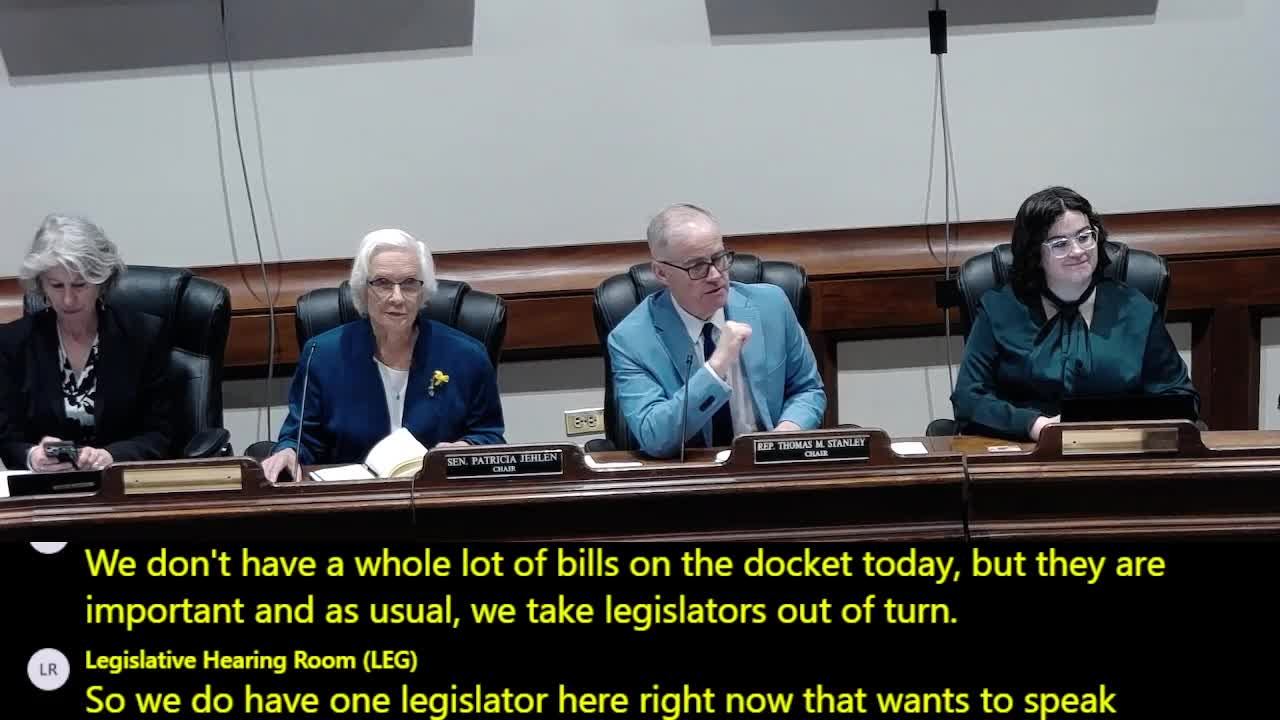Committee hears bill to let councils on aging directors hire staff, update outdated language
Get AI-powered insights, summaries, and transcripts
Subscribe
Summary
A bill to amend Massachusetts law so that directors of municipal councils on aging can hire staff without requiring a separate council vote drew support at a Joint Committee on Aging and Independence hearing Monday.
A bill to amend Massachusetts law so that directors of municipal councils on aging can hire staff without requiring a separate council vote drew support at a Joint Committee on Aging and Independence hearing Monday.
Representative Michael Donahue told the committee he supports H.765 / S.487, which would amend Section 8B of Chapter 40 of the Massachusetts General Laws to reflect how councils on aging are structured in most communities today. “This would increase the effectiveness of the director and the ability to meet the needs of older adults,” Donahue said.
Committee members and witnesses said the proposal has two main aims: update “ageist terminology” in the statute and reconcile the law with current municipal practice. Betsy Connell, executive director of the Massachusetts Association of Councils on Aging, said the statute—first enacted in 1956—still reads as if councils were universally supervisory boards that make hiring decisions. “Since the statute was established and passed in 1956, councils have grown to fall into two categories, supervisory and advisory,” Connell said, and the bill’s language would explicitly allow for both models.
Why it matters: Supporters said the change would remove a statutory mismatch that has at times put local actions at odds with state law. Connell described a case in Sherborne where voters approved a town-warrant article to let a senior-center director hire staff, and the Attorney General’s office disapproved the article as inconsistent with Chapter 40, Section 8B. Proponents said the bill would prevent similar conflicts and let senior-center directors operate without risking noncompliance with state law.
Discussion and clarifications: Representative Gentile asked whether the bill would shift hiring authority to town managers or other municipal officials. Donahue and Connell clarified the bill’s intent: it would allow the municipal council-on-aging director to hire staff where local governing documents assign that responsibility. “The proposed language change reflects both constructs of advisory and supervisory,” Connell said, noting that only a small number of councils remain supervisory in the traditional sense.
No formal committee vote on H.765 / S.487 was recorded during the hearing. Donahue asked that the measure be reported favorably and offered to answer questions; committee members said they would review the language.
Additional context: Witnesses emphasized the bill is a refiled measure with prior favorable movement and that the change aims to reduce confusion about whether local bylaws, town charters, or state statute control hiring for senior-center staff. The Massachusetts Municipal Association was reported by Connell as a supporter; no formal opposition was recorded in the hearing transcript.
Ending: The committee took testimony and clarification but did not take a formal vote on the measure during the session. Advocates urged the committee to move the bill to resolve conflicts between local practices and the current text of Chapter 40, Section 8B.
